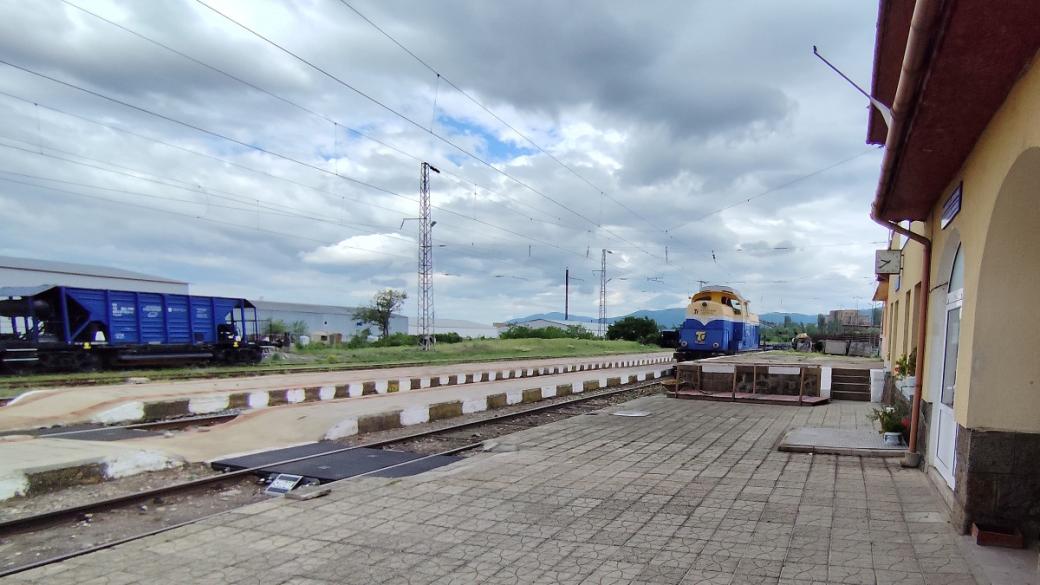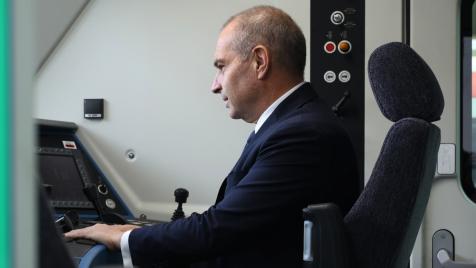Three lots, one favorite: Where will private rail carriers go?
The Ministry of Transport is dividing the country's rail network into three parts, but only one is profitable

© ECONOMIC.BG / Krasimir Svrakov
Rail transport in Bulgaria is on the verge of a historic change that, in theory, should bring more competition but also challenges. This change begins with the publication for public consultation of the Draft conditions and procedure for awarding public transport services by rail. With this, the Ministry of Transport is finalizing preparations for a large-scale public tender for passenger rail transport, which is expected to start at the end of July. The actual transport of passengers by private operators is expected to begin at the end of 2026.
Undoubtedly, the documentation published by the relevant ministry focuses on the new distribution of routes into three regional lots, ambitious deadlines, and expected profits.
Three regional titans, one clear favorite
The initial plans announced by former Transport Minister Krasimira Stoyanova for the distribution of lines have undergone significant changes. We recall that she announced that the lines would be Sofia-Plovdiv-Burgas, Sofia-Gorna Oryahovitsa-Varna, and all other railway lines.
The current transport minister, Grozdan Karadzhov, is introducing a regional structure, dividing the country into western, northern, and southern lots. This change aims to stimulate competition and improve the quality of services.
However, the Western lot undoubtedly stands out as the most attractive and profitable. It will concentrate a number of important routes in which private companies have already expressed interest. It will include:
- Express trains (InterCity): the fastest and usually the most profitable lines;
- International trains: adding prestige and high revenue potential;
- Night trains: serving the longest and most strategically important routes;
- A significant portion of fast (InterRegional) and regional trains, especially on the busiest routes around Sofia, Plovdiv, and the major cities in the west.
Key routes, such as Sofia–Plovdiv–Burgas and Sofia–Gorna Oryahovitsa–Varna, will be covered by the Western Lot. Private companies, such as Plovdiv-based Pimk Rail Express and Ivkoni Express, have already expressed interest in these lines. They may divide the routes between themselves, as Ivkoni Express plans to operate on weekends and public holidays.
Stara Zagora-based Raylimpex has no clear intentions regarding the lines.
The maps examined, which are part of the documentation, clearly show that this lot includes the most profitable and strategically important railway routes in the country.
The Northern Lot will include railway lines in Northern Bulgaria.
It will mainly serve regional routes, as well as some key intercity lines that are essential for connectivity in the region. This lot will provide better connections between important centers such as Varna, Ruse, and Gorna Oryahovitsa, as well as smaller towns in Northern Bulgaria. Although it does not include the most profitable international and express trains, the Northern Lot is important for the economic and social development of the region, providing accessibility and travel opportunities for the local population. The maps for regional and suburban trains show a network connecting settlements in the northern part of the country.
The Southern Lot covers lines in Southern Bulgaria, including regional and suburban services around Plovdiv, Stara Zagora, and Haskovo. This region is important as it serves dynamically developing urban agglomerations and regional centers. Similar to the Northern Lot, it is mainly focused on ensuring regional mobility and connectivity between smaller towns and regional centers. Although it does not generate the same high revenues as the Western lot, the Southern lot is critical for ensuring the social function of rail transport and access to services for the population in the southern part of the country. The map of regional and suburban trains details these connections.
Financial conditions and profits
From a financial point of view, the new contracts provide for a “reasonable profit” of a maximum of 5%, which, according to the Ministry, is standard practice for the sector. Prices may be indexed no more than once every three months, based on the inflation index.
Former Transport Minister Krasimira Stoyanova had envisaged that the upcoming contracts would be for eight years, but it is now clear that they will be for 12 years. At the same time, the state will provide newly purchased rolling stock, financed under the Recovery and Sustainability Plan, proportionally among the selected carriers, which is another key element in competition between operators.
The competition for the lines will be based on the “lowest price per train-kilometer.”
To ensure the new operators can get going, the government has made it possible for them to use the existing infrastructure for maintenance. According to the documentation, the contracting authority will provide access to repair depots and maintenance bases that are publicly owned on an equal basis to all carriers selected in the procedure.
This ensures that new market entrants will have access to the necessary facilities for servicing and repairing rolling stock without having to build their own expensive facilities.
The future of BDZ-PP
The upcoming changes will put the state-owned carrier BDZ-Passenger Transport in the inevitable position of having to adapt quickly to the new competitive environment. Experts and trade unions have long warned that BDZ-PP is likely to be left with the less profitable regional and suburban lines, especially given the interest of private companies in the profitable lines.
This could further worsen the financial situation of the company, which already suffers from insufficient resources for renewal and maintenance. BDZ-PP will need to urgently improve the quality of its services and optimize its operations, otherwise it risks losing significant market share to private players.
Despite the challenges, competition could bring real benefits for Bulgarian passengers – better services, higher quality, and more options for traveling by train.
Translated with DeepL.

 Gloria Hristova
Gloria Hristova 
